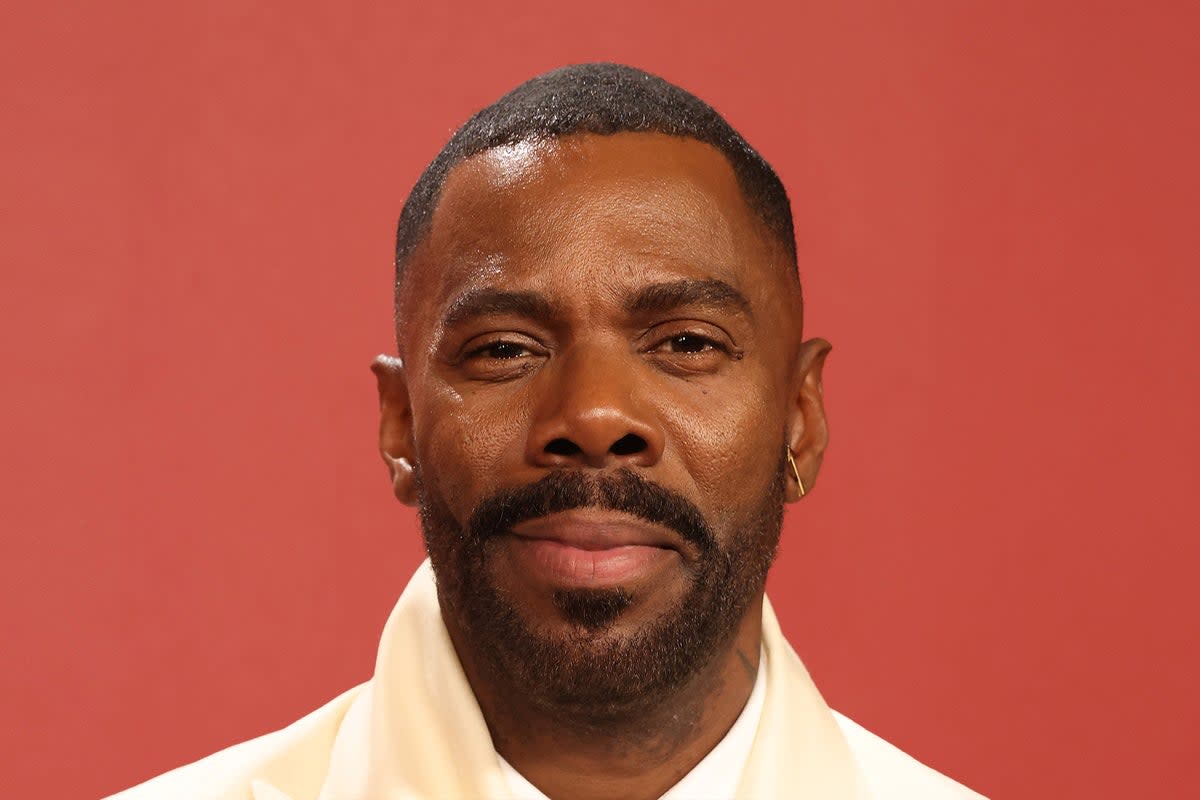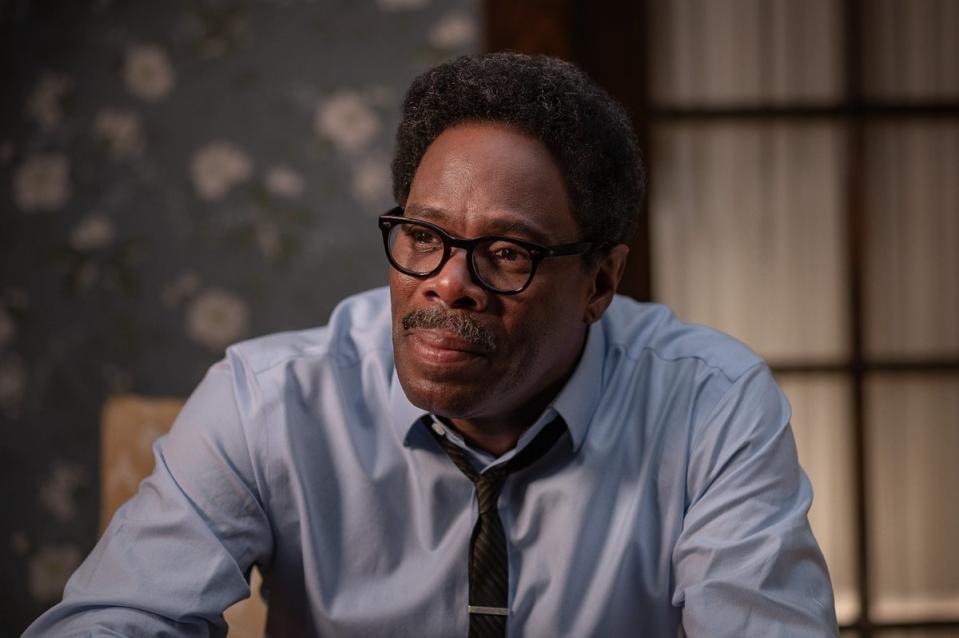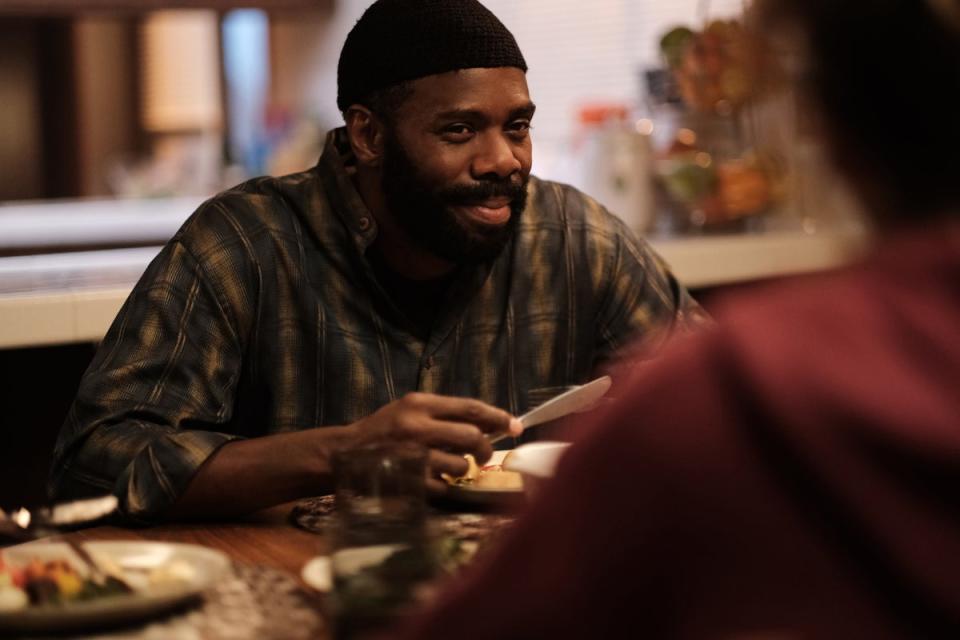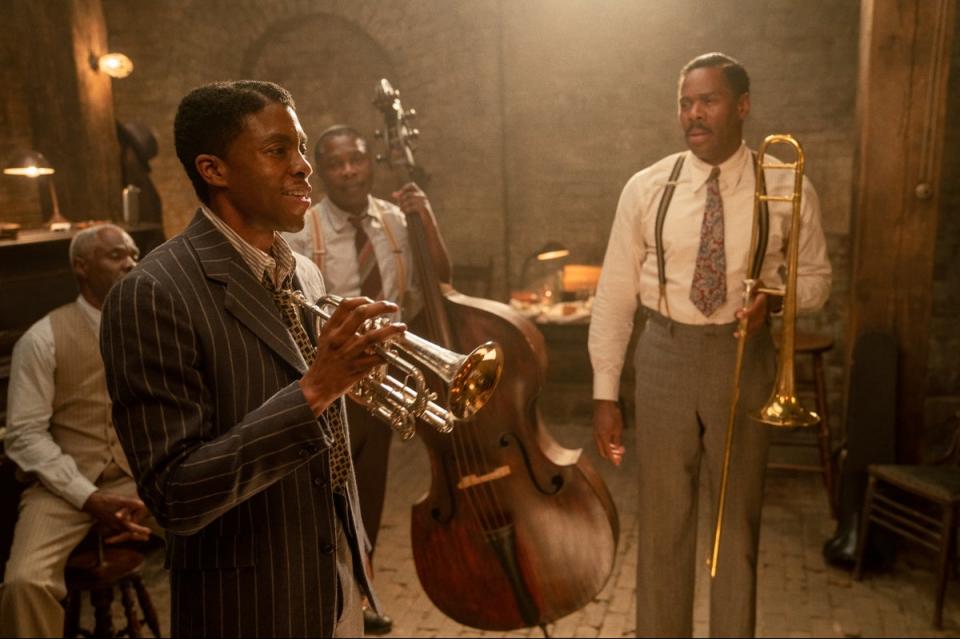Colman Domingo on Netflix biopic Rustin and rumoured turmoil on Euphoria: ‘A lot of young actors may not be up for the task’

Ah, yes! The library!” Colman Domingo lights up at the word. The 53-year-old star of Fear the Walking Dead and Euphoria is standing in the corridor of a central London hotel, eager to escape the warren of pleasantly furnished but slightly soporific private rooms in which we find ourselves. It was in libraries, he tells me later, that he first explored his love of storytelling, the creative impulse that would steer him towards a career in entertainment. (“I’d make little film strips and things like that… the library’s where you could always find me.”) We could hardly pick a better place to stave off his jetlag.
Domingo has flown into the country for a few days to promote his new film, Rustin. Released on Netflix last week, the biopic is set in the build-up to the iconic 1963 March on Washington, the rally at which Martin Luther King delivered his “I Have a Dream” speech. Rustin dedicates itself to the nitty-gritty of civil rights organising, and features a coruscating lead performance by Domingo, playing Bayard Rustin – a brilliant and important activist whose role in the civil rights movement has historically been under-acknowledged. When I ask why this is, Domingo pulls me up. “Not under-acknowledged. Erased,” he says. “It was erased because he was openly gay.
“How can I say this…” he muses. “Black folks, especially in the Fifties and Sixties, had to show the ‘best’ of ourselves, because images were everything. Television, how we’re perceived. So there was a monolithic idea of how we had to present ourselves. And Bayard was such an outlier in every single way.”
Settled into a sofa in the corner of the library room, Domingo orders an espresso. Just a single. He talks with his arms folded, genially and confidently. Like Rustin, Domingo is gay, and he’s been married to producer Raúl Domingo since 2014. But the story he was telling was one far removed from his own. “It’s funny… if people know that we’re both openly gay, they think there must clearly be some part of me in him. But I had to build this character like any other,” he says. “The vicious pimp I played in [2020 crime drama] Zola, or the father in [2018 James Baldwin adaptation] If Beale Street Could Talk… I had to build them the exact same way, and then infuse with what I can access in my soul.”
For a film like Rustin, which is in many ways a response to decades of homophobic erasure, it feels somehow important that its protagonist was portrayed by a queer actor. But when it comes to the seemingly perennial debate around straight actors taking gay roles, Domingo sees both sides. “I have strong opinions about this,” he explains. “If there’s been any bristling, it’s because there’s been less opportunity for LGBTQIA+ people to portray [themselves on screen].” But a moral diktat is not what he wants. “Do I think that only queer people should play queer people? Absolutely not. That doesn’t make sense to me at all.”
Domingo cites Tom Hanks’s Oscar-winning role as an Aids patient in Philadelphia as an example of what would be lost. And besides, he adds, “would that mean I can’t play straight people? I should be able to. I should have the heart, and the aptitude, and the courage to play many different characters – black; white; queer.”
Rustin is Domingo’s first leading screen role, and he certainly makes it count: bookmakers already consider him a serious contender for the coming awards season. But his rise from journeyman to leading man took more than three decades, and saw him nearly quit the industry entirely. He was born in Philadelphia, to working-class parents – his mother was a housekeeper and worked in customer service at a bank, while his father was a blue-collar worker who “sanded hardwood floors and made them all pretty and beautiful”. Domingo gestures at the ground beneath us. “He probably would have done these.”

A shy kid who had a lisp and was “very bookish, not athletic at all”, Domingo got into acting through the theatre, having initially taken a journalism course at university. (If there’s a trace of the lisp in his voice now, it’s lost on me – he speaks with a kind of elegant calm, gently gravelly.) Early roles included small parts in cop drama Nash Bridges, Clint Eastwood’s True Crime and episodes of Law & Order. Towards the end of the Noughties and early 2010s, he started landing more prominent roles – in acclaimed Broadway musicals Passing Strange and The Scottsboro Boys; a minor part in Steven Spielberg’s Lincoln. Domingo wrote and directed for the stage; for a while he dabbled in photography, specialising in portraits.
After a stint performing in the UK and Australia, however, he returned to New York unsure whether he wanted to continue acting. “This isn’t some Hollywood fluff story,” he says, “but I was literally on my way out of this business. I didn’t think I was going to be fulfilled any more after I moved back from London. I was auditioning for very dumbed-down projects.” The plan was to make his photography side hustle a full-time pursuit. Instead, he changed manager and agent, and auditioned for a hotly anticipated spin-off of a hit AMC drama: Fear the Walking Dead.
So much legislation in the United States is trying to turn backwards into 1963 – when it comes to LGBTQIA+ rights, book bans, etc. I think that ‘Rustin’ is meeting this time
Colman Domingo
The series was often viewed as a disappointment by critics and fans of the original Walking Dead, but Domingo, who ended up as the show’s longest-serving cast member, has only fond memories. “It really changed me, man. It changed my standing in this industry. It gave me a solid foundation of work and wealth. I became a television director and became a producer on that show.” His position saw him act as an advocate for better working conditions. “On a long-running show, some things can get messy, some things you have to advocate for,” he says. “You have to advocate for time, making sure things are working in an efficient way. Or good food. I can’t do my job unless I’m healthy and warm. I like to show up and know that I’m gonna have a good day. I don’t wanna fight many fights.”
Fear the Walking Dead was one thing. But what about Euphoria? Domingo was nominated for an Emmy for his guest role on Sam Levinson’s buzzy teen drama, playing the sobriety sponsor to Zendaya’s Rue. The series debuted in 2019; around the release of its second season last year, reports emerged of chaos and discord behind the scenes, with the cast allegedly unhappy with overlong working days and Levinson’s creative process. Was this Domingo’s experience? “No,” he replies firmly. “Not one bit. I’m not gonna invalidate [anyone’s] experience. But working in television is long hours. Sometimes you work up to 14 hours a day. And then you have to go home and prep. You have to really live and work in a very methodical way. A lot of young actors may not be up for the task, or have that same work ethic.”

Set in the drug-washed, sex-charged world of a US high school, Euphoria features a cast that are mostly in their mid-twenties, making Domingo – who’s appeared in seven of the 18 episodes so far – “one of the OGs” on set. “I’ve been in this business for 32 years,” he continues. “I know what hard work is. So when I heard those ‘reports’” – he squeezes his fingers into air quotes – “I thought, ‘where is this coming from? That’s just a normal work day’. Be a professional.”
Domingo has worked with Levinson before, on the similarly provocative 2018 film Assassination Nation, and has nothing but good words for him. “There’s no one that’s going to mistreat you on the set of Euphoria,” he says. “Sam Levinson is joyful, and collaborative, and could not be a bigger advocate for his actors.”
Levinson is just one of the high-profile collaborators to make their way onto Domingo’s CV – an enviable list that includes Spielberg (“warm, kind… funny”), Steven Soderbergh (“thoughtful and quiet”), and Ava DuVernay (“every day she walks in and embraces every single one of her actors”). He was directed by Moonlight’s Barry Jenkins on Beale Street, and remains optimistic about the filmmaker’s decision to direct a Lion King sequel for Disney: “Folks gotta do what they gotta do… I know that when he got the offer to do it, he was very excited.”
When I mention Chadwick Boseman, Domingo’s late co-star in Ma Rainey’s Black Bottom, he leans forward, his voice growing slightly softer. “Oh man… Chad was a good friend and a real inventive actor. I was always very proud of him, especially when he started to take off. Not only because he was Black Panther, but I love the way he represented himself. I love the way he spoke about humankind. That’s why there are buildings and schools named after him. He had a huge impact for such a young life and I think it’ll be felt for generations.”

The glut of top-tier filmmakers lining up to cast Domingo shows no signs of drying up: next year, the actor can be seen in Ethan Coen’s Drive Away Dolls, a film he describes as “real funny, dark, and weird”. But with Oscar season yet to come, it’s probably talk of Bayard Rustin that’s going to dominate Domingo’s life for the next few months. It’s a good job, then, that the film is so timely.
“There’s a propulsion right now for a film like Rustin,” he says, eagerly. “So much legislation in the United States is trying to turn backwards into 1963 – when it comes to LGBTQIA+ rights, book bans, etc. I think that this film is meeting this time.”
At a moment when the left needs political strategy and coordination more than ever, Rustin’s practical, granular approach to history may be the right kind of biopic. “It’s a very sexy movie about organising, basically,” Domingo says. “That’s the sexiest part of this film. It’s not even about Rustin’s sex life. It really is about that potent energy of organising, and trying to bend our country towards justice.” He laughs one last gravelly chuckle. “That’s hot.”
‘Rustin’ is streaming now on Netflix

 Yahoo News
Yahoo News 
